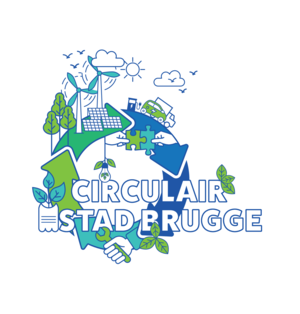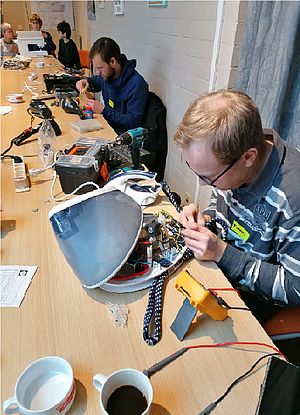Bruges, Belgium
The City of Bruges proudly presents itself as a good place to live, reside and work - and they strive to keep it that way. With the Climate Plan Brugge Naar Morgen, the City of Bruges is committed to reducing local CO₂ emissions by half by 2030. By 2050, Bruges wants to be a climate-neutral city and have no net CO₂ emissions. By eliminating these emissions, the city opts for a high-quality living and working environment, with healthy air for everyone. In the meantime, the city is being adapted to the new weather conditions.

Find out more
Circular strategy
Since circular economy is one of the fundamental pillars of the climate plan, a circular strategy has been developed. The City of Bruges aims to create a context in which circular action becomes automatic, from design to reuse, from education to every company. In this way, every resident of Bruges comes into contact with circular initiatives. Through this circular transition, Bruges wants to reduce emissions, use raw materials more efficiently, promote local circular activity, social cohesion and employment. Together with partners, the City of Bruges inspires, activates and facilitates citizens, entrepreneurs, visitors and other governments to also focus on circularity.


Circular ambitions
Promising value chains include construction, food and organic residual flows, consumer goods (including furniture, textiles, bicycles and electrical equipment), (residential) healthcare and the hospitality sector. Bruges is also becoming a pioneer in circular heritage. Bruges strives for an integrated and measurable approach to circularity and uses local levers to this end, so that the circular potential is optimally used: technological development and knowledge sharing via research and educational institutions, logistics handling and using residual flows via the waste and material processors and the port, scaling up and collaborations via the regional role that Bruges has.
